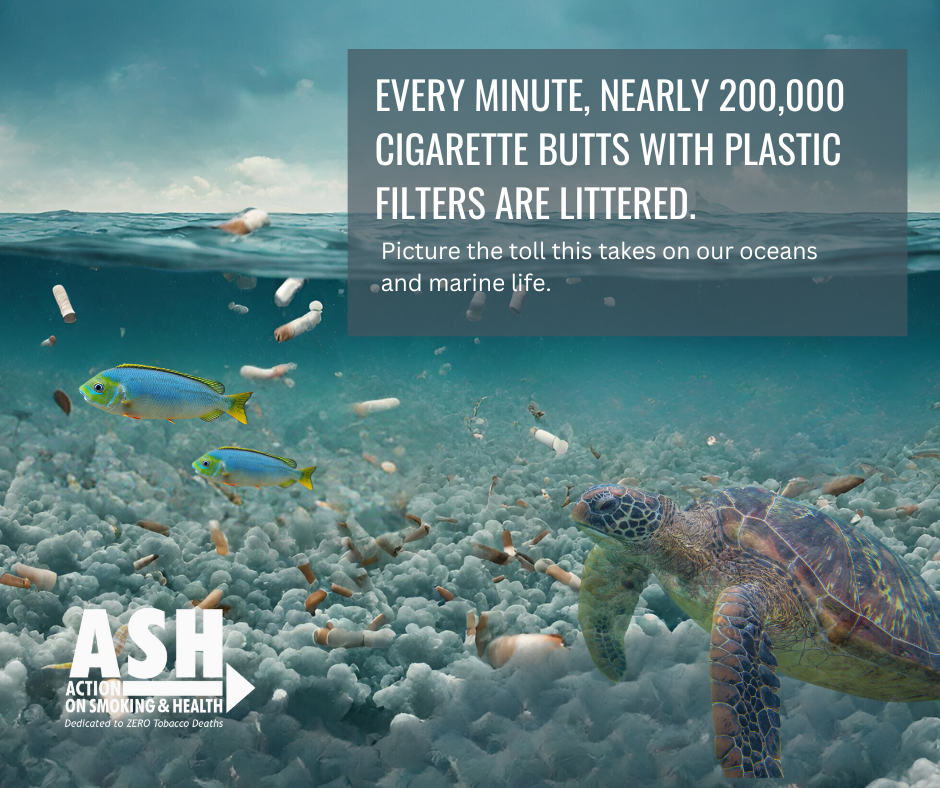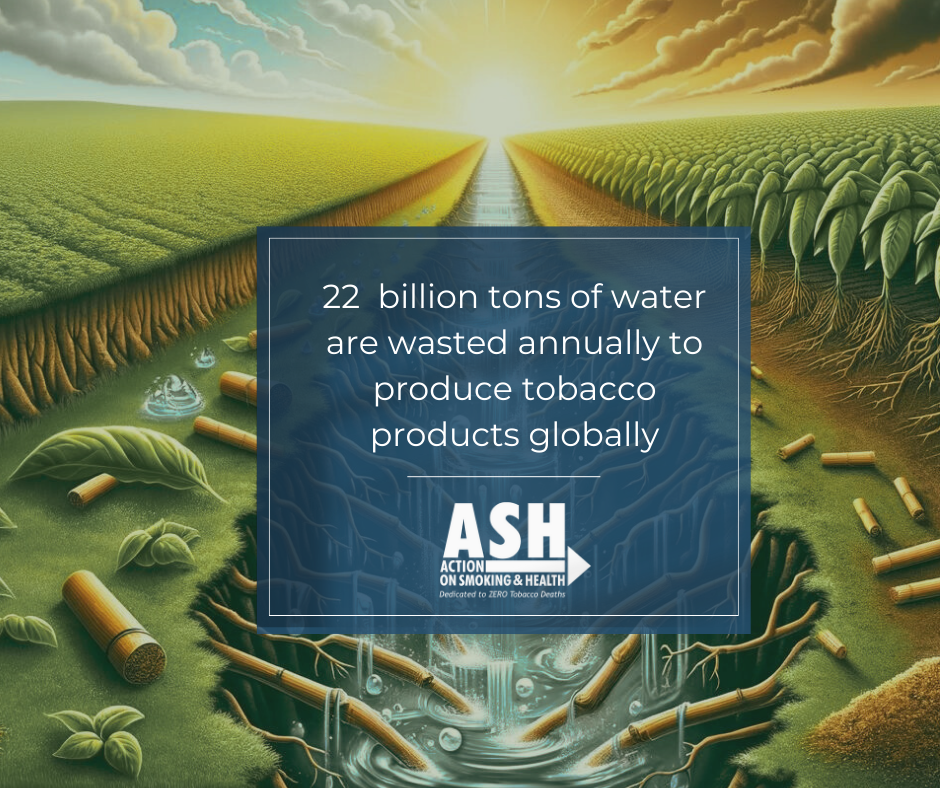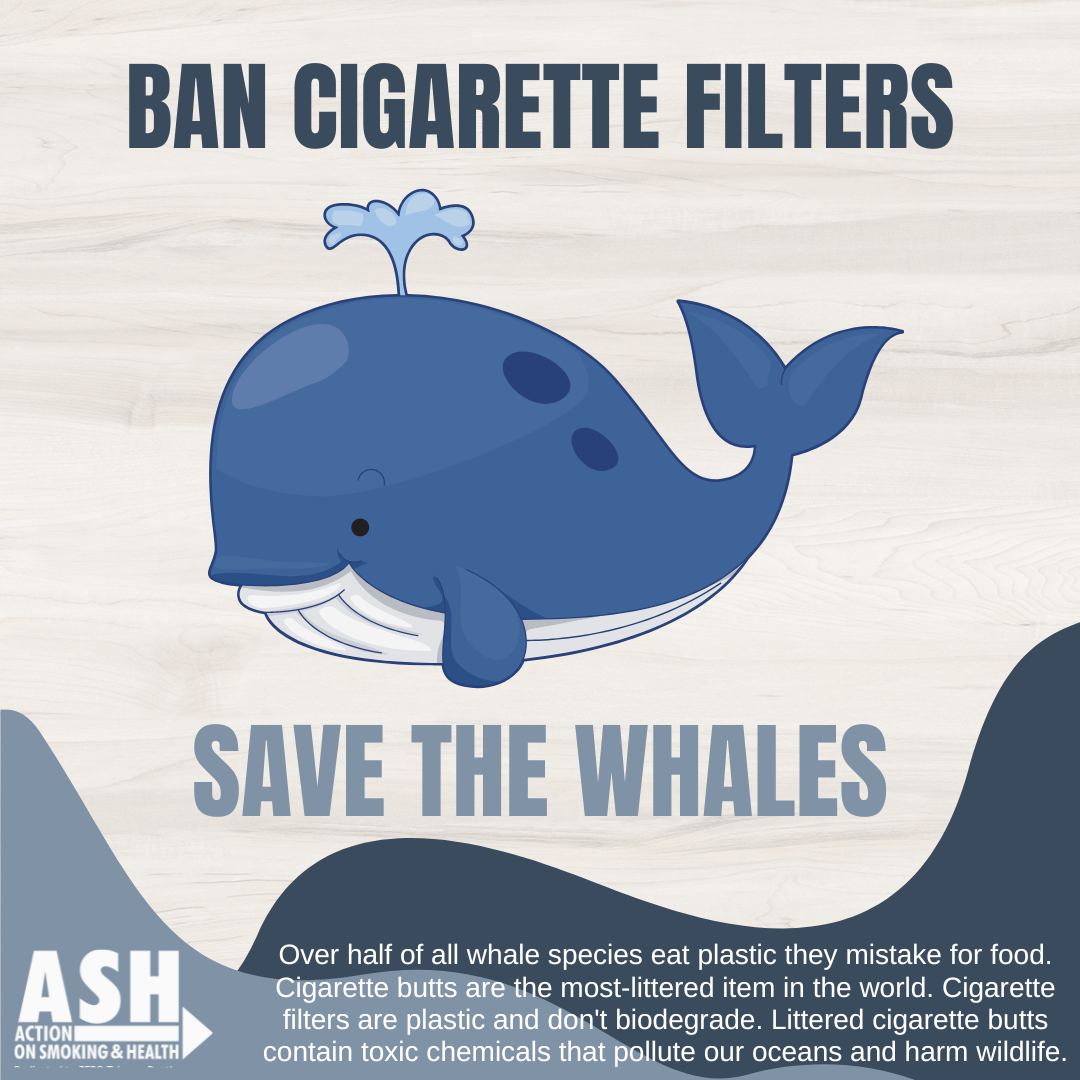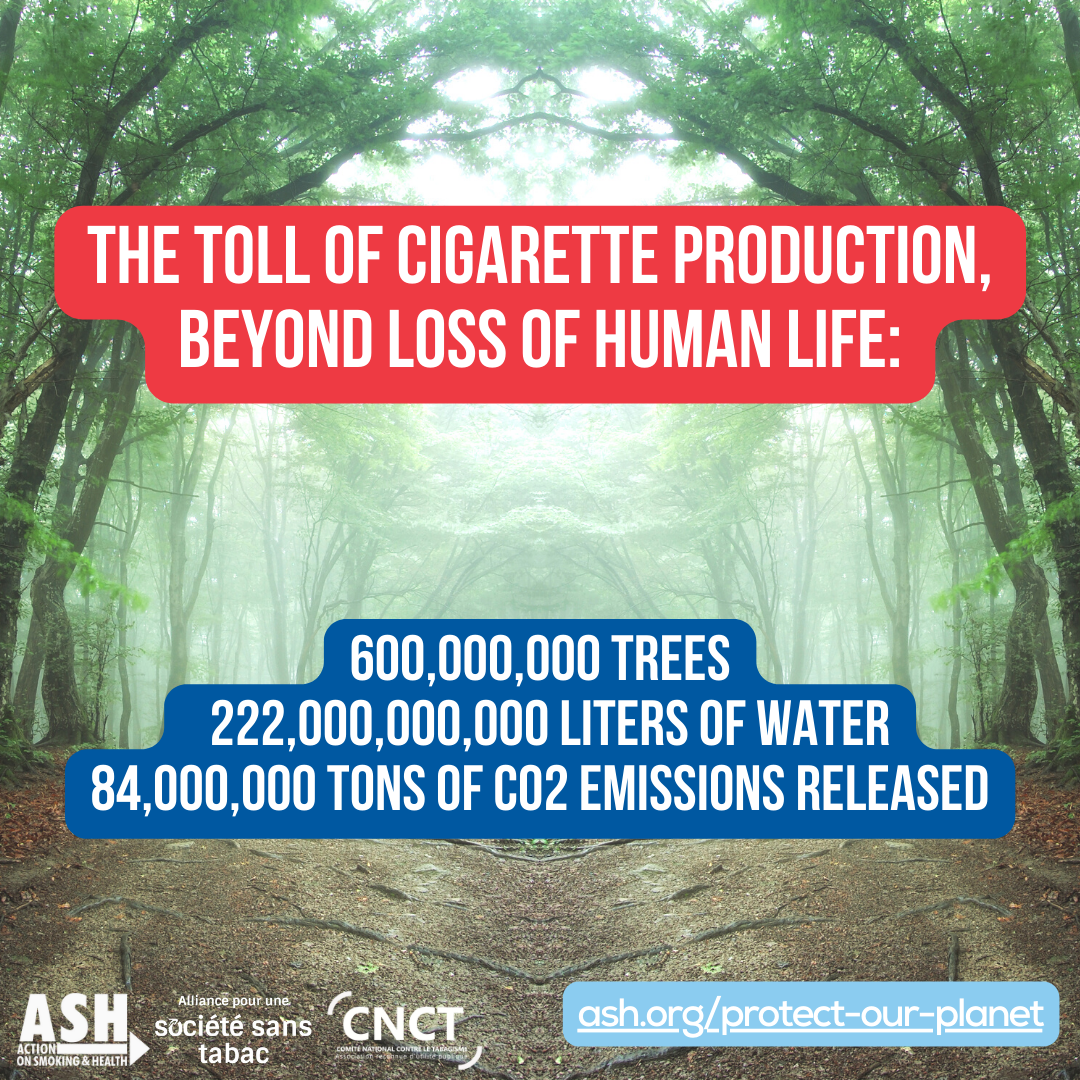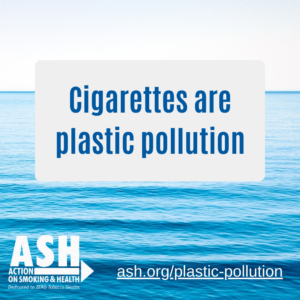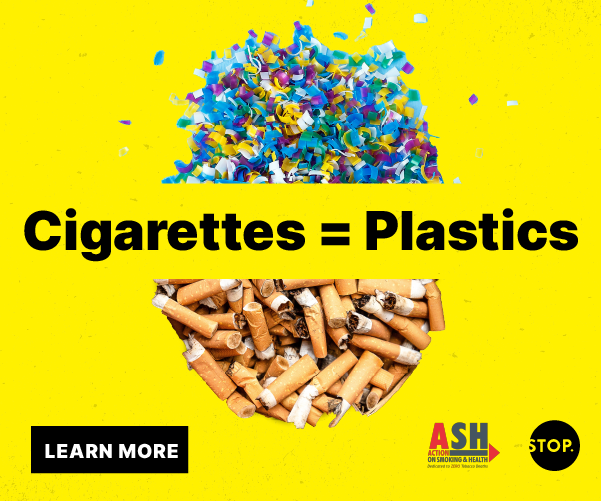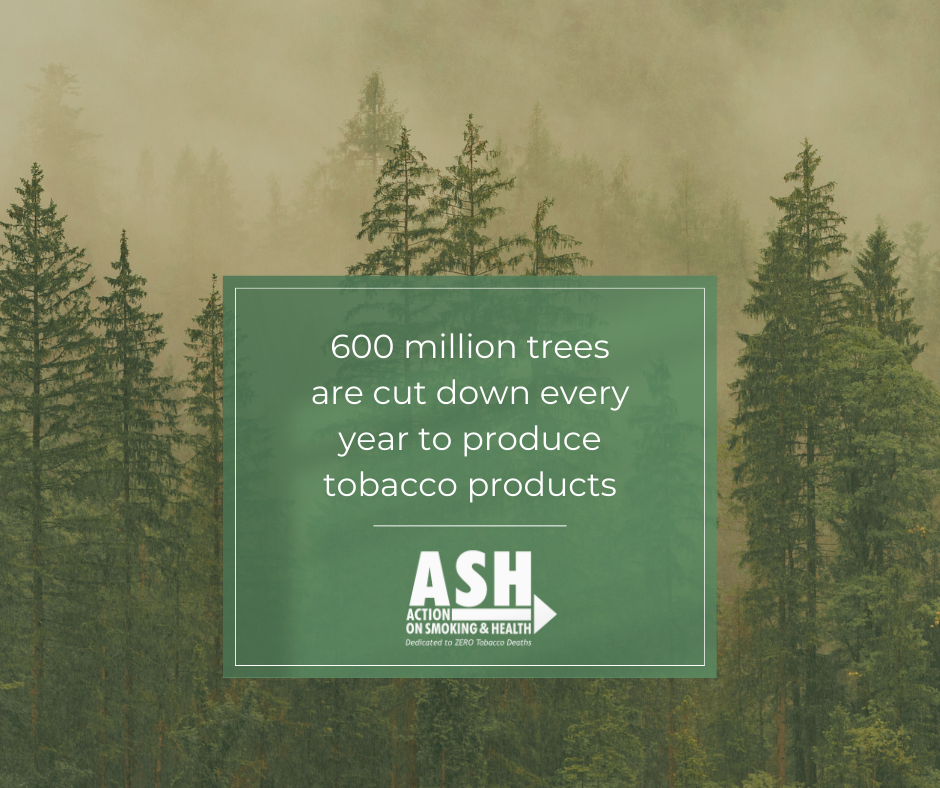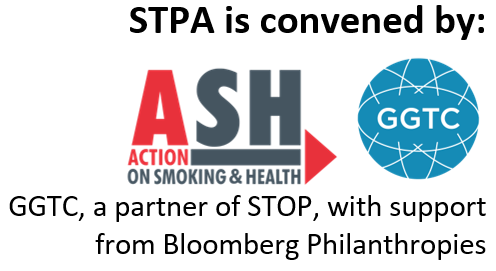The United Nations Environment Programme (UNEP) has correctly designated cigarette filters as a form of single-use plastic. The Intergovernmental Negotiating Committee (INC) for the plastics treaty must consider a ban or strict regulation of all single-use plastics as a necessary measure to reduce pollution and save our oceans.
The final session (INC-5.2) will be held August 5-14, 2025 in Geneva, Switzerland.
Read ASH’s Key Points for INC-5.2: English
Cigarette filters are the number one form of litter worldwide – 4.5 trillion are littered every year.
Banning cigarette filters would better protect our environment and public health.
Key Messages
Stop Tobacco Pollution Alliance (STPA)
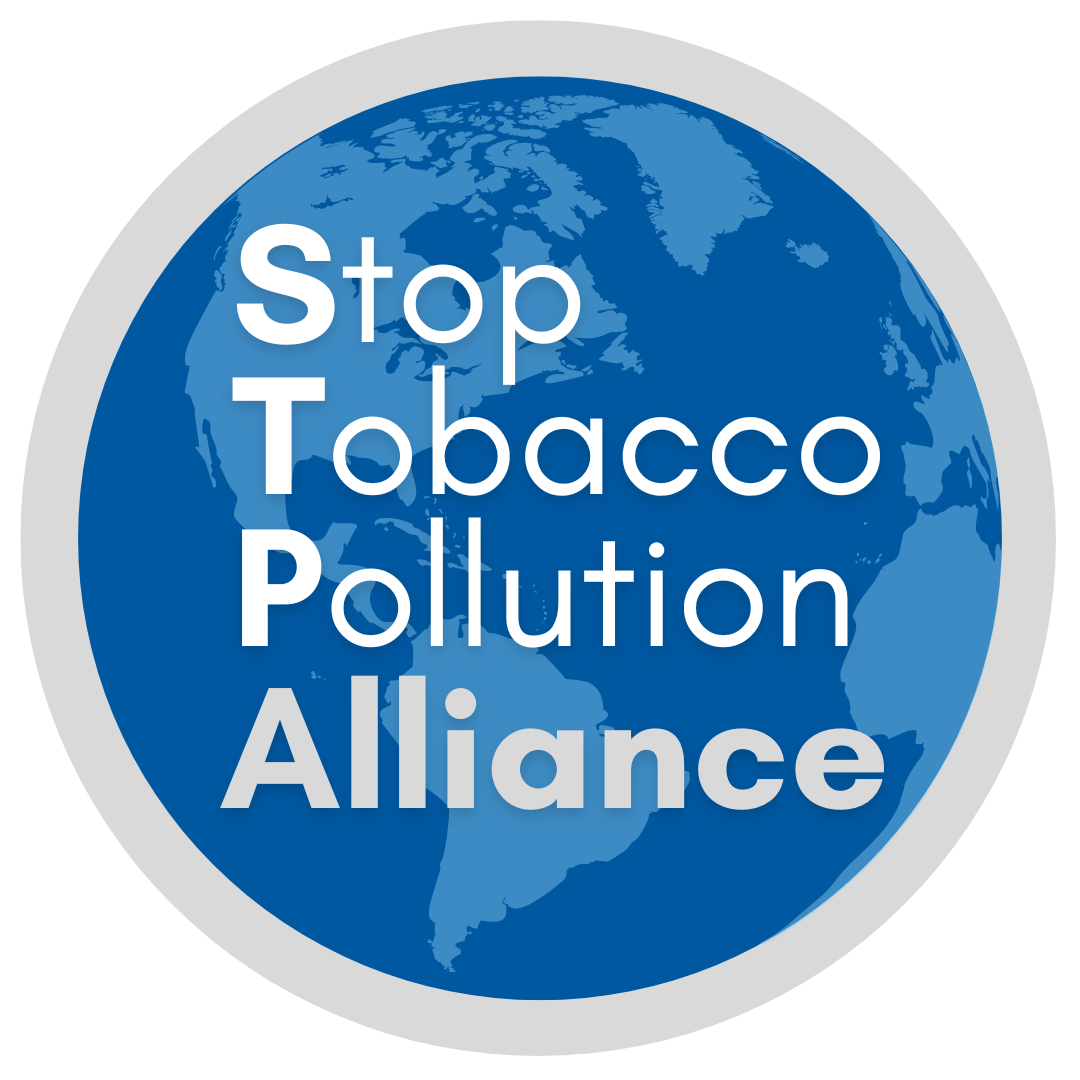
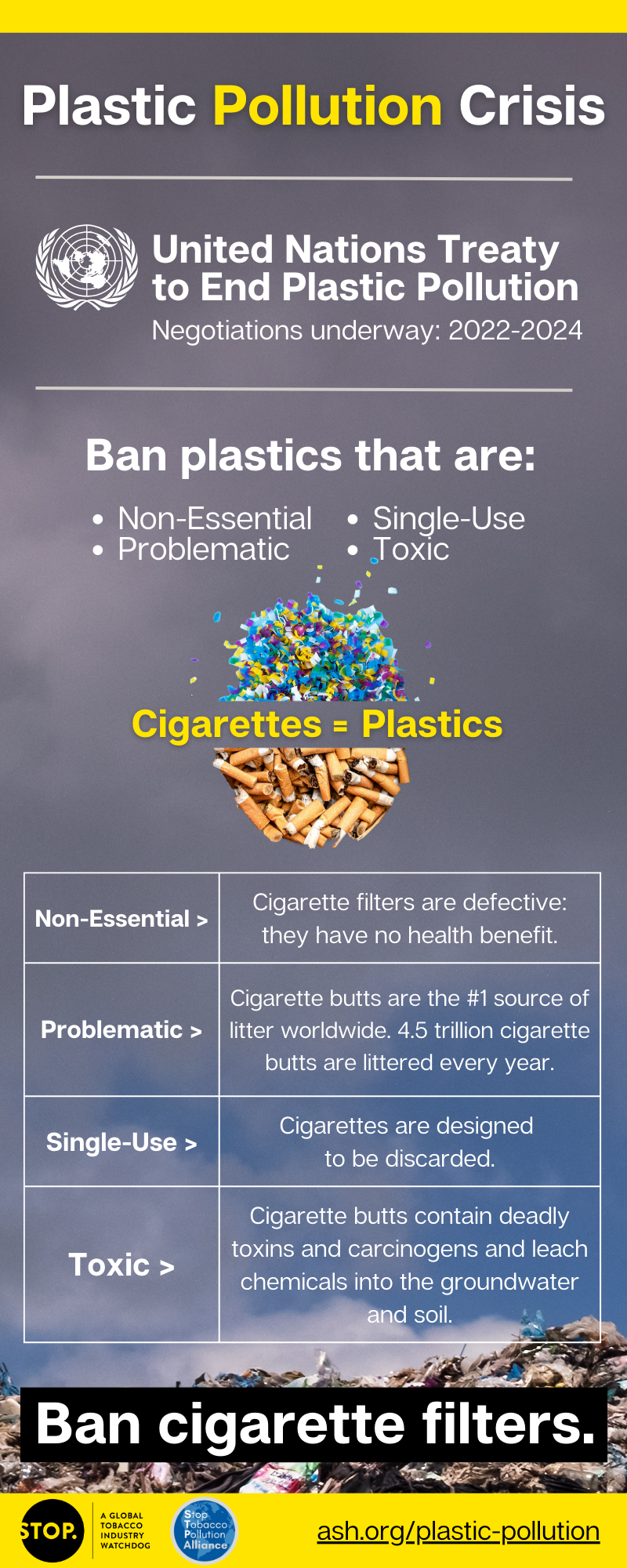
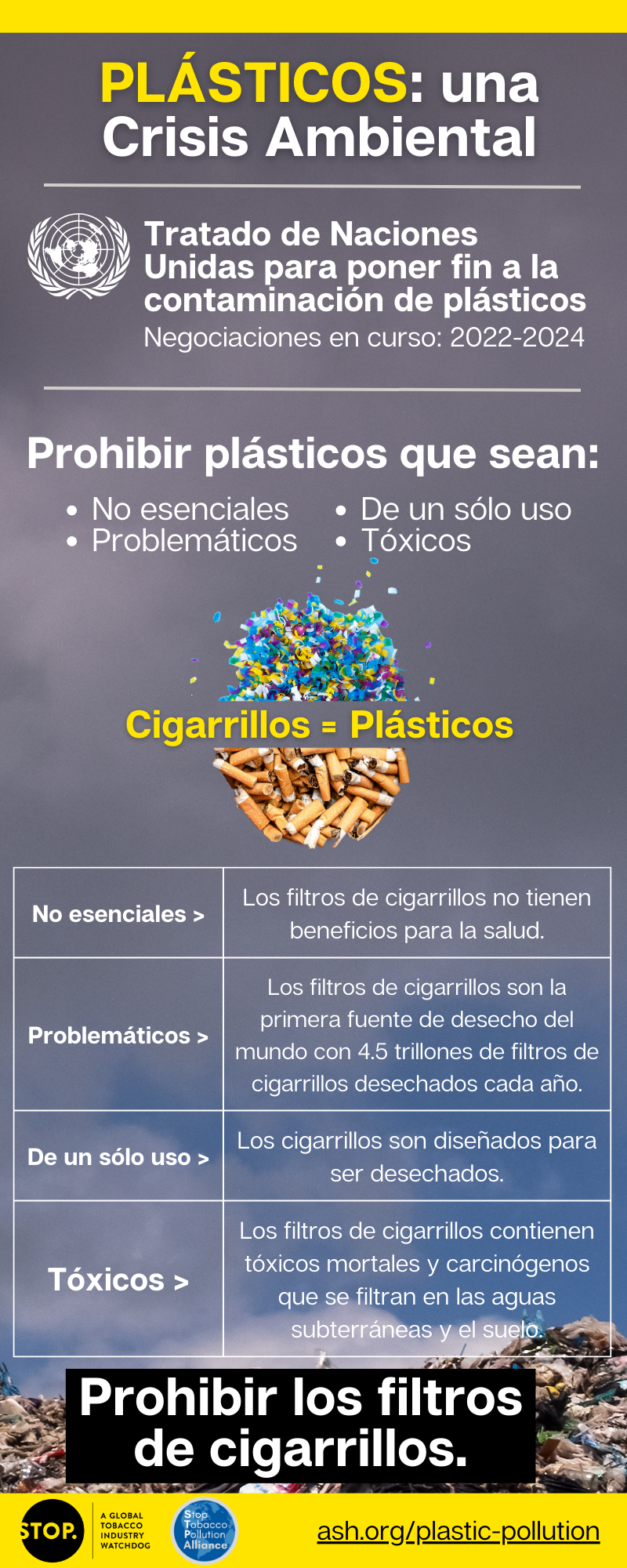
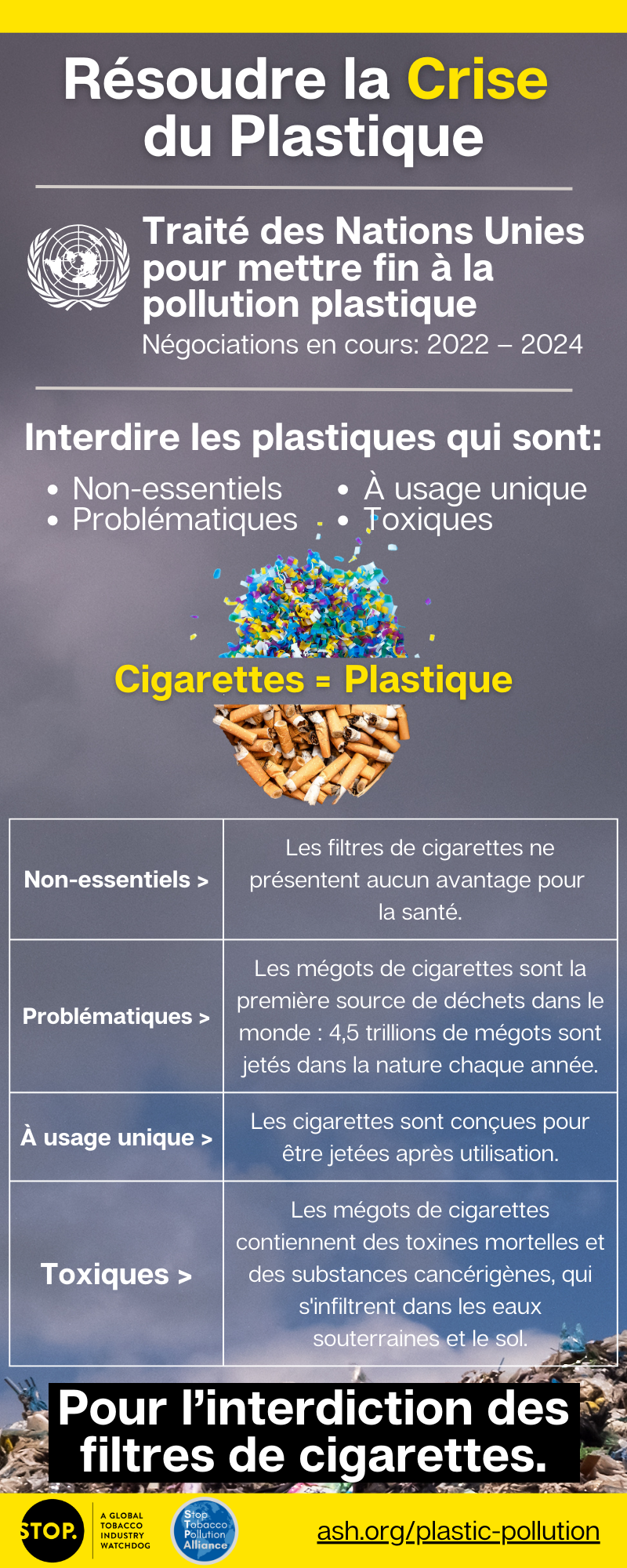
ASH is proud to be a founding and organizing member for the Stop Tobacco Pollution Alliance (STPA), a global coalition of 100 public health organizations who recognize the crucial intersection of tobacco control and environmental health. STPA will actively participate in the UN plastics treaty negotiations from November 2022 through 2024 and remain active to ensure strong implementation of treaty measures that serve to reduce the tobacco epidemic and its toll on the environment.
Key Resources from STPA
Key Messages
INC-4 Brief on the Zero Draft
INC-4 Treaty Text Proposals
Background: Plastics Treaty Process and National Policies
Tobacco in Plastics Policies
Biodegradable Filters: a Health and Environmental Hazard for the Secretariat of INC-2, prepared by CNCT
Position Paper for the Secretariat of INC-2
Press Kit for INC-5
List of STPA Member Organizations
Cigarettes are toxic, plastic waste with no health benefit
- Journal Article: Cellulose acetate cigarette filter is hazardous to human health
- Research Review: The Cigarette Filter: A Review of Utility, Environmental Impacts, and Policy Solutions
- Journal Article: The ‘filter fraud’ persists: the tobacco industry is still using filters to suggest lower health risks while destroying the environment
- Journal Article: Tobacco product waste cleanups and costs
- Journal Article: Whose butt is it? tobacco industry research about smokers and cigarette butt waste
- Journal Article: A second life for cigarette butts? A review of recycling solutions
- Bioaccumulation study of organic compounds from smoked cigarette litter in the freshwater rainbow trout, Oncorhynchus mykiss
- Journal Article: Cigarettes Butts and the Case for an Environmental Policy on Hazardous Cigarette Waste
- Journal Article: Tobacco Product Waste: An Environmental Approach to Reduce Tobacco Consumption
- Journal Article: Time to kick the butt of the most common litter item in the world: Ban cigarette filters
- Blog: Global Plastics Treaty must align with Global Tobacco Control Treaty
- Tobacco Tactics: Plastics, the Environment and the Tobacco Industry
- STOP Issue Brief: The Tobacco Industry and the Environment
- White Paper: Tobacco Product Waste
- White Paper from Plastic Health Council: Protecting future generations from the manmade plastics health crisis
- Brief Report: Switching people who smoke to unfiltered cigarettes: perceptions, addiction and behavioural effects in a cross-over randomised controlled trial
Menthol and the Environment
Case Studies
- 600,000,000 trees are chopped down to make cigarettes
- 84,000,000 tonnes of CO2 emissions are released into the air raising global temperatures
- 22,000,000,000 tonnes of water are used to make cigarettes
- The harmful impact of the tobacco industry on the environment is vast and growing adding unnecessary pressure to our planet’s already scarce resources and fragile ecosystems.
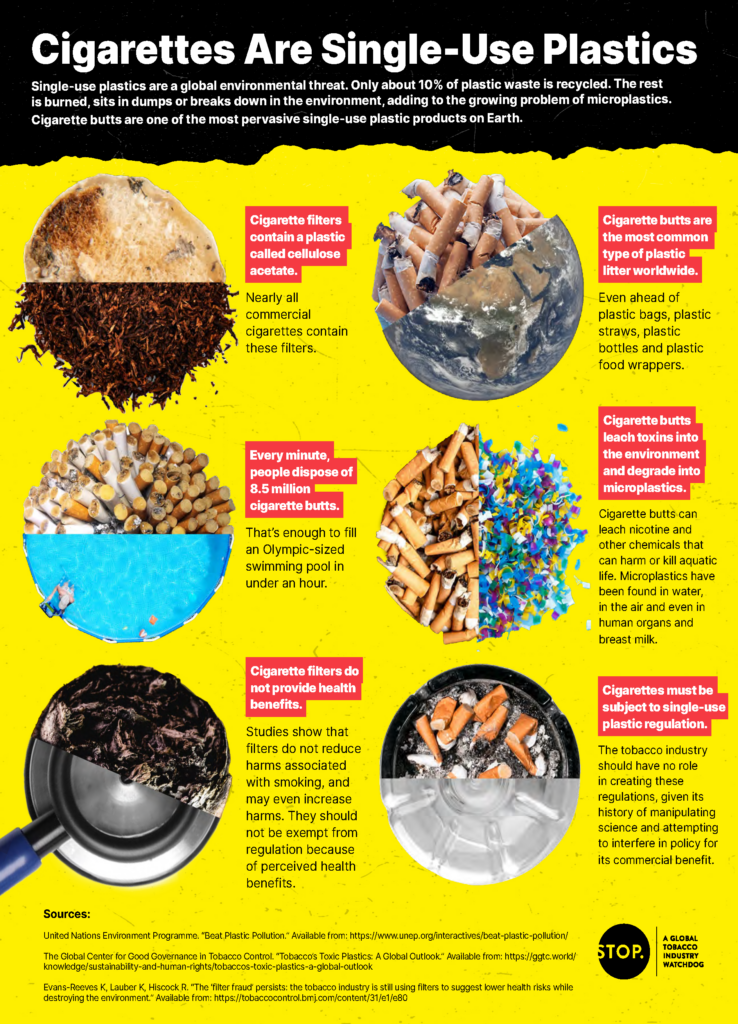
Spanish Translation here>
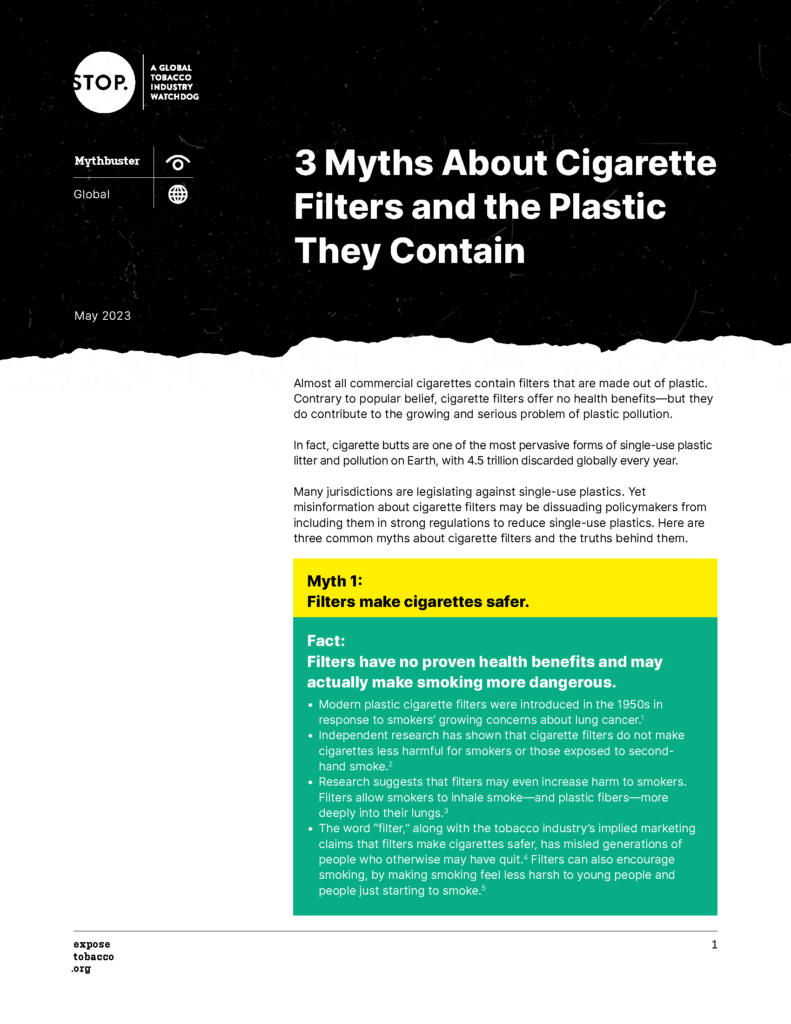
Statement on behalf of WHO including the Secretariat of the WHO Framework Convention on Tobacco Control at INC-1: Read the statement here>
Country Support for a Cigarette Filter Ban NETHERLANDS On April 19, 2023, the Dutch State Secretary for Infrastructure & Water Management published her response to a Dutch report that recently came out regarding cigarette filters. The report was commissioned by the Ministry in reaction to a Parliamentary motion, asking the government to reduce the percentage of cigarette filters in litter by 70% in 2026 compared to 2022. Summary of the policy plan the State Secretary presented. She supports a filter ban and will:-
- Explore the possibility of a national ban on cigarette filters;
- Try to have a ban on cigarette filters included in either the EU Single Use Plastics Directive or the Tobacco Products Directive, when these directives will be revised, and will try to get other EU Member States to join this effort;
- Start discussions with local authorities about making beaches and other relevant environments smokefree;
- Develop and implement a toolkit to support local enforcement authorities to prevent cigarette filters from ending up in the environment.
A ban on filters would be one of the most impactful policies in the history of tobacco control. More than 98% of the cigarette market is filtered cigarettes, and its likely many people who smoke would quit rather than switch to filter-less cigarettes.
Cigarette filters do not add any level of protection for the consumers’ health – that is a common misconception perpetuated by tobacco companies. Filters are particularly useful to the tobacco industry in making smoking initiation easier for children; meaning without filters, the tobacco industry’s ability to trap “replacement smokers” would diminish greatly. Countless lives will be saved.
At the same time, the environmental impact of a filter ban would be huge.
Cigarette filters are plastic. They take many years to break down, and as they do, they release microplastics into the environment, mostly into water systems. Filters are full of toxins and carcinogens – a single cigarette butt in a goldfish bowl will kill the goldfish.
The trade-off? There is none.
Filters do nothing to lessen the harm from cigarettes, and in fact make things worse.
Amplify on Social Media
Share your support on social media by using #PlasticsTreaty #INC4 #PlasticPollution in combination with the resources above and the graphics below.
Tag ASH: @ASHorg on Twitter, Instagram, TikTok. @ASHglobalAction on Facebook.
Tag GGTC: @TheGGTC on Twitter and Facebook.
Additional graphics and post captions in English, Spanish and French are available for download here.
Background
In February 2022, the UN Environmental Assembly adopted a resolution to begin negotiations on an international, legally-binding treaty to end plastic pollution. These treaty negotiations offer an important opportunity to improve the health of people while improving the health of the planet.
The first round of the International Negotiation Conference (INC-1) was held in Uruguay in November 2022. Read ASH’s daily blog recaps and interventions from INC-1 (November 28 – December 3, 2022), starting here. Read ASH’s Intervention at INC Stakeholders Meeting on January 31, 2023
The second round of negotiations (INC-2) to develop the UN Plastic Pollution Treaty will be held in Paris, France from May 29-June 2, 2023. Email ASH here to discuss INC-2>



